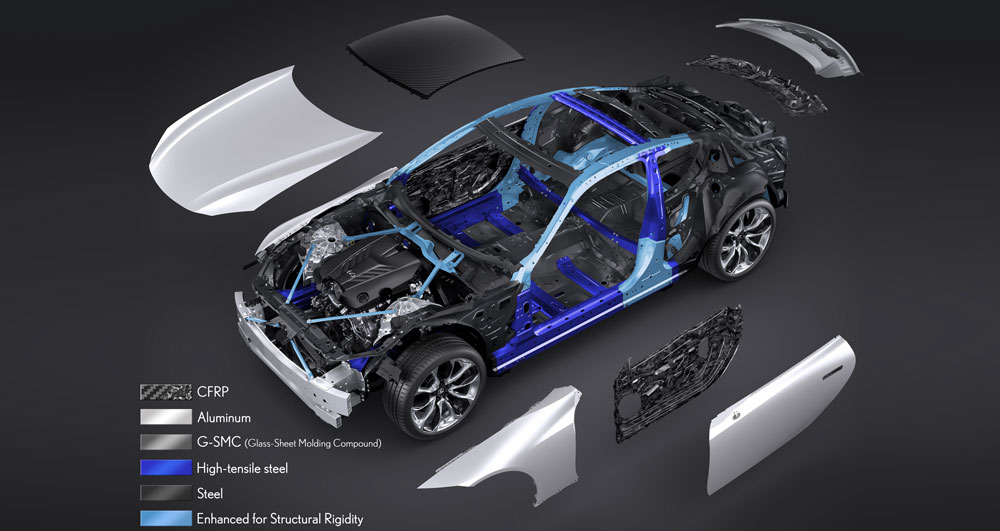More carbon fiber parts could be coming to future Lexus vehicles, thanks to a new process and increased in-house production — from Automotive News:
SMC represents a new manufacturing process for Toyota, even though the automaker has used similar materials for the Lexus LFA supercar. But they are specialty uses for limited-volume panels, [JP Flaharty, executive program manager for technical strategy at Toyota North America R&D] clarified.
Working with material supplier Mitsubishi Chemicals, the [carbon fiber sheet molded compound] process, which uses chopped fibers rather than long fibers, is faster and has proved far easier for Toyota to undertake in house for a mass market vehicle.
“The material we’re using is more similar in design and manufacturing conceptually to sheet metal forming,” Flaharty said. “You’re making a mold, you’re making a shape, it’s got this 3-D characteristic to it. So we’ve got a lot of know-how and a lot of understanding in how that works. We can align our capabilities to do this internally.”
The doors and deck lid of the Lexus LC was made from carbon fiber sheet molded compound, or SMC, but there’s been an even more impressive use for the material — the liftgate on the mass-market Toyota Prius Prime plug-in hybrid.
(This represents a sea change in the way carbon fiber are being used in the automotive industry, and it should only a matter of time before SMC makes its way across the Lexus lineup.)


Comments